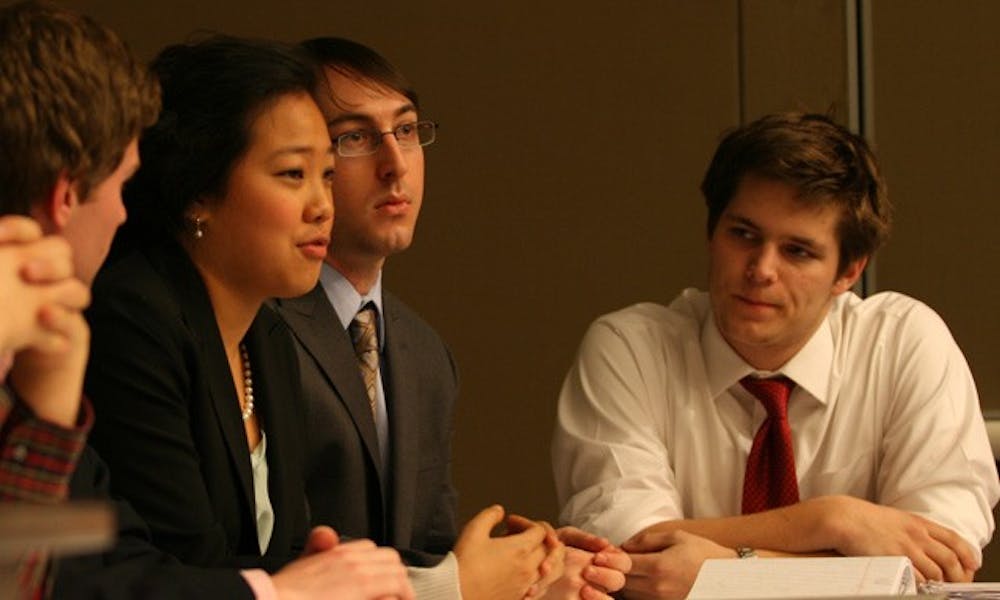Following a 50-minute special session with the Duke Student Government Executive Board Wednesday night, senators approved the recommendation of the Student Organization Finance Committee Reform Commission.
At last week’s meeting, senior Sam Halls, the commission’s chair and DSG treasurer, proposed a trial that would allow the eight campus performance groups access to “bucket funds” to cover capital expenditures, as well as a discretionary budget to fund collaborative efforts among the groups.
Senators tabled the issue last week to give the Senate more time to draft amendments, but Wednesday night’s vote far exceeded the mandatory two-thirds approval.
Athletics and Campus Services Senator Ben Bergmann, a junior, proposed an amendment to allow other clusters of groups to petition to become involved in next year’s trial, but the idea was rejected.
“It basically eliminates the notion of a trial period,” Academic Affairs Senator Danny Lewin, a senior and former Chronicle columnist, said. “If we suddenly incorporate, say, 30 percent of the chartered groups into this new bucket system, then it’s not a trial period at all. It’s a trial by fire period, and I don’t think that’s good.”
Senators also dismissed a proposed bylaw that would have determined the DSG elections by majority instead of the current instant runoff system.
Senior Matt Rognlie spoke in open forum in favor of the instant runoff system. He said it is more effective in elections that are close and involve many candidates, adding that the current system is fairer and lets people vote honestly.
“What instant runoff voting does, by making people’s second choices and third choices matter, it lets us use that additional information and be sure that that person is qualified for the job,” Rognlie said.
During the special session, Executive Board members responded to senators’ questions about Young Trustee elections, dining and housing, among other topics.
The board discussed how last semester’s Young Trustee reform process is affecting the current campaigns.
“I was surprised and a little bit discomforted by the fact that we couldn’t pick eight semifinalists,” Vice President for Academic Affairs Cynthia Chen, a senior, said. “I think that on this campus there are way many more than eight people who would be well qualified to be Young Trustee, and so my hope is that the new process... is something that will change that fact and prevent it from occurring again.”
DSG President Awa Nur, a senior, brought up a personal concern about the campaigns.
“It has been playing out almost like a DSG presidential election and that has been very distasteful to me,” Nur said. “I’m more interested in... their ideas about campus, our future, where we’re headed with the University’s finances, the division between athletics and academics on campus, and this is the information that is not getting out to students.”
Nur added that the candidates have shared such information with endorsing organizations, but the broader student body has not been informed.
Get The Chronicle straight to your inbox
Signup for our weekly newsletter. Cancel at any time.

